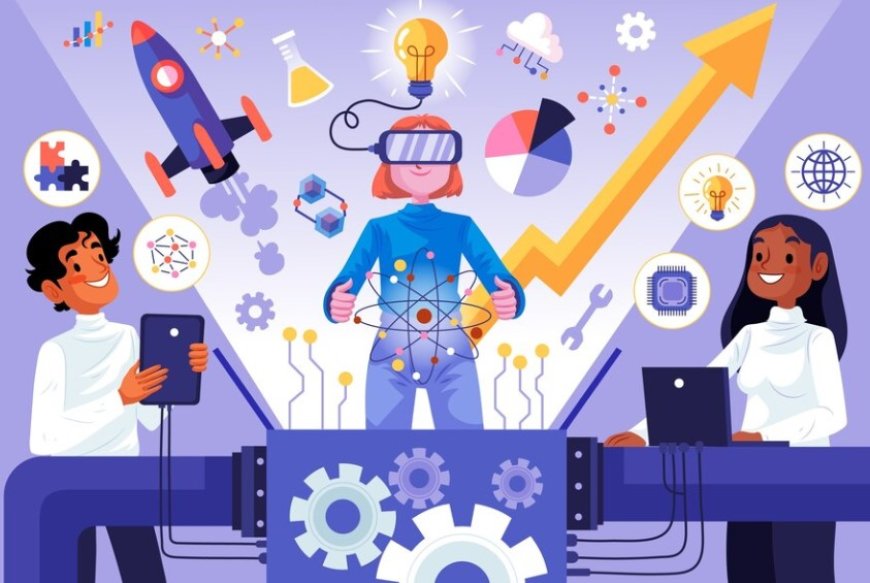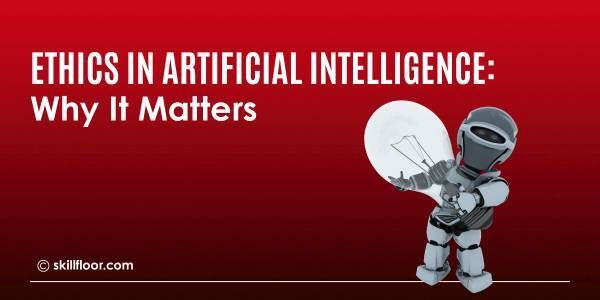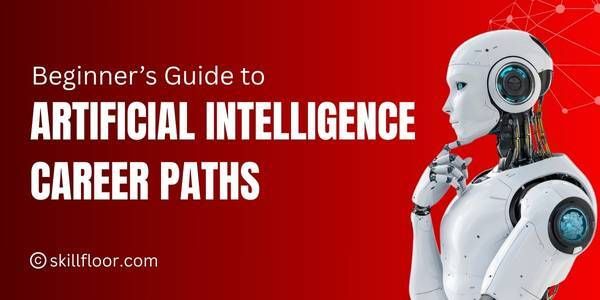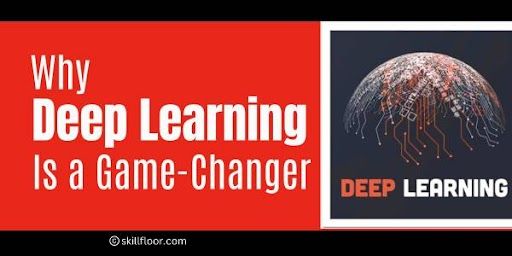Exploring the Roles of AI in Social Impact
Explore the transformative potential of AI in addressing social issues. Learn how artificial intelligence impacts social impact projects and community initiatives.

Artificial Intelligence (AI) is no longer confined to the realms of science fiction or technology-driven industries. It has extended its reach into the heart of societal transformation, making a profound impact on various aspects of our daily lives. Beyond its commercial applications, AI is playing an increasingly pivotal role in addressing some of the world's most pressing social challenges.
Healthcare Revolution
The healthcare industry is experiencing a profound revolution thanks to the integration of artificial intelligence (AI) technologies. AI is dramatically enhancing the way we approach diagnosis, treatment, and patient care. One of the key contributions of AI in healthcare is its ability to analyze massive amounts of medical data quickly and accurately. Machine learning algorithms can sift through patient records, medical images, and clinical notes to detect patterns and anomalies that might go unnoticed by human healthcare professionals. This not only speeds up the diagnosis process but also improves its accuracy, reducing the likelihood of misdiagnosis and subsequent medical errors.
Furthermore, AI is playing a crucial role in treatment planning. By analyzing a patient's medical history, genetic information, and the latest clinical research, AI systems can suggest personalized treatment options. This tailoring of treatment plans can lead to more effective therapies, fewer side effects, and better patient outcomes.
AI is also contributing to the optimization of healthcare operations. Predictive analytics, driven by AI, can help healthcare providers forecast patient admissions, allocate resources efficiently, and reduce costs. This is especially valuable in the context of managing healthcare systems and improving patient experiences.
Another notable area where AI is making an impact is in remote patient monitoring and telemedicine. Wearable devices and remote sensors connected to AI systems enable real-time monitoring of patients' vital signs and health metrics. This allows healthcare professionals to keep tabs on patients outside of the hospital, particularly those with chronic conditions, and intervene promptly if necessary.
Education and Personalized Learning
Education has traditionally followed a one-size-fits-all model, with students progressing through standardized curricula at a uniform pace. However, the advent of Artificial Intelligence (AI) has ushered in a new era of personalized learning, where education is tailored to individual student needs and abilities.
AI-powered personalized learning systems leverage algorithms to analyze a student's learning patterns, strengths, and weaknesses. By collecting data from students' interactions with digital learning platforms, these systems can adapt content and pace to match each student's unique requirements. For instance, if a student excels in mathematics but struggles with reading comprehension, AI can recommend specific lessons and exercises to address those weaknesses while allowing them to progress at their own pace in other subjects.
One of the key advantages of personalized learning is increased student engagement. When students feel that their education is relevant to their interests and abilities, they are more likely to be motivated and invested in their learning journey. Personalized learning environments can incorporate a variety of multimedia elements, interactive simulations, and real-world applications to make learning both enjoyable and effective.
Environmental Conservation
Environmental conservation is a critical aspect of AI's role in social impact. AI technologies have proven invaluable in monitoring and safeguarding our planet's ecosystems. Satellite imagery, remote sensors, and machine learning algorithms work together to track deforestation, wildlife populations, and the state of various ecosystems. These tools provide real-time data and insights that help conservationists and policymakers make informed decisions about protecting our environment.
Furthermore, AI has made significant contributions to combating environmental threats like poaching and illegal fishing. By analyzing patterns in data, AI can identify suspicious activities and alert authorities, enabling more effective enforcement of environmental laws. In this way, AI acts as a guardian of wildlife and natural habitats, reducing the harm caused by illegal activities.
AI's capabilities extend to climate change as well. AI-driven simulations and models help scientists understand the complex dynamics of climate systems, allowing for more accurate predictions and better-informed policy decisions. These tools empower researchers to explore various scenarios and potential solutions to mitigate the effects of climate change, contributing to global efforts to reduce greenhouse gas emissions and preserve the planet for future generations.
Disaster Response and Relief
Disaster response and relief is one of the critical areas where Artificial Intelligence (AI) is making a significant impact. When natural or man-made disasters occur, the rapid and effective response can mean the difference between life and death for affected populations. AI technologies are being employed to enhance various aspects of disaster management and relief efforts:
-
Early Warning Systems: AI-driven predictive models can analyze historical data, weather patterns, and geological data to forecast natural disasters such as hurricanes, earthquakes, and floods. These early warning systems provide authorities with valuable information to prepare and evacuate populations in advance, reducing the potential for casualties.
-
Damage Assessment: Drones equipped with AI algorithms and sensors can quickly assess the extent of damage caused by disasters, especially in hard-to-reach or hazardous areas. This information is invaluable for first responders and relief agencies in planning and prioritizing their interventions.
-
Search and Rescue: AI-powered robots and drones equipped with cameras and sensors can navigate disaster-stricken areas to search for survivors, even in conditions where human access is limited or dangerous. These machines can locate individuals trapped under debris and relay their coordinates to rescue teams for swift response.
-
Resource Allocation: AI can optimize the allocation of resources like food, medical supplies, and personnel in disaster relief efforts. By analyzing real-time data and demand patterns, AI can ensure that resources reach the areas and people most in need, improving the overall efficiency of relief operations.
Social Services and Accessibility
In the realm of social services and accessibility, artificial intelligence (AI) has been instrumental in making vital resources and information more readily available to underserved populations. AI-powered chatbots and virtual assistants equipped with natural language processing capabilities have emerged as efficient tools for providing information and support to individuals seeking assistance with government programs, healthcare, and various social services. These AI-driven interfaces can answer queries, guide users through application processes, and offer timely assistance, thereby reducing the administrative burden on human service providers and ensuring that services are more accessible to those in need.
One significant advantage of AI in social services is its capacity to work tirelessly and consistently. These AI-driven systems can provide assistance and information around the clock, making them especially valuable for individuals who may require support outside of standard business hours or who are in urgent need. Moreover, AI can handle a wide range of inquiries simultaneously, ensuring that users don't face long wait times or delays in accessing critical information or services.
Artificial Intelligence is proving to be a powerful tool for driving positive social impact across various domains. From revolutionizing healthcare and education to enhancing environmental conservation and disaster response, AI is helping us address some of the most pressing challenges facing our world. However, it's important to ensure that AI is deployed ethically and with a focus on equity to maximize its potential for social good. As AI continues to evolve, its role in driving positive social change will undoubtedly expand, offering new solutions to complex problems and helping create a more inclusive and sustainable future for all.




























































